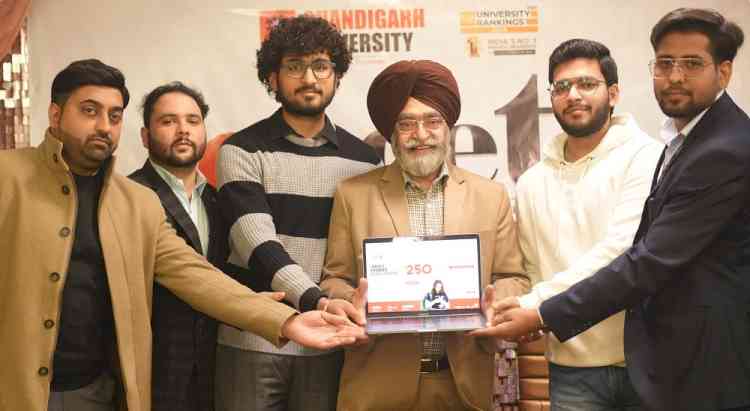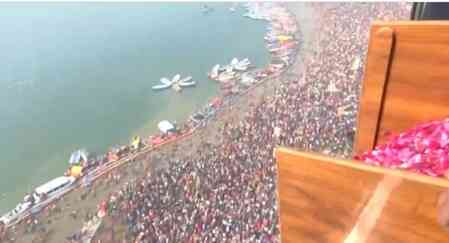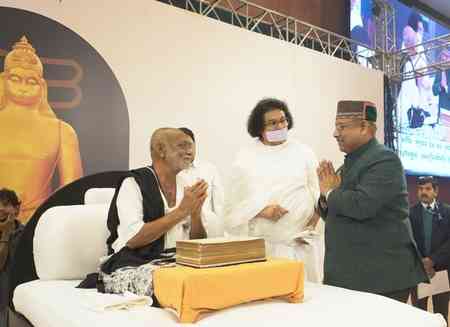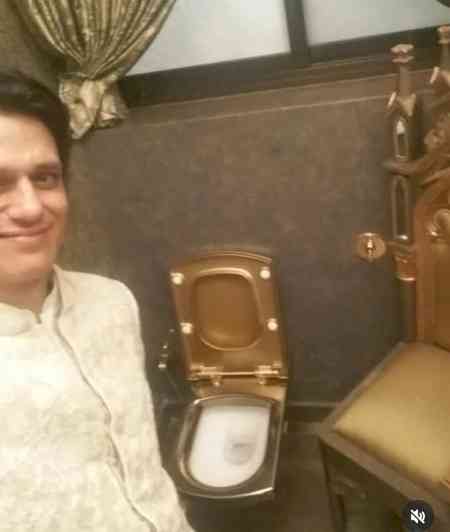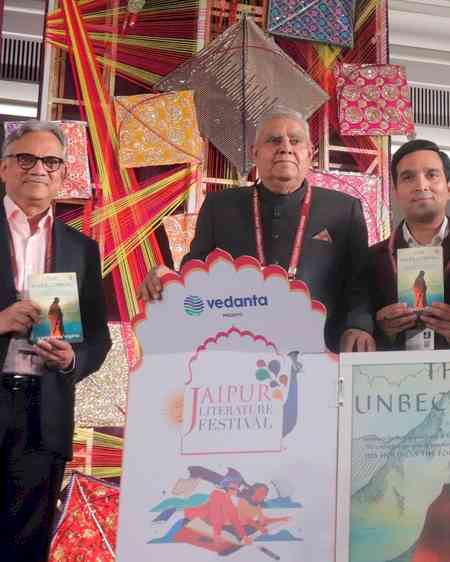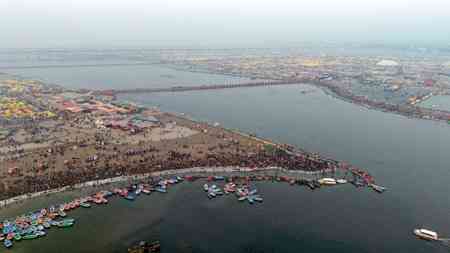Seminar on theme “India, Pakistan and Gulf: Diplomatic and Strategic Perspective” organised at PU
The Department of Defence and National Security Studies, Panjab University, Chandigarh organised a seminar on the theme “India, Pakistan and Gulf: Diplomatic and Strategic Perspective” today at the CIL/SAIF Seminar Hall, Panjab University, Chandigarh.
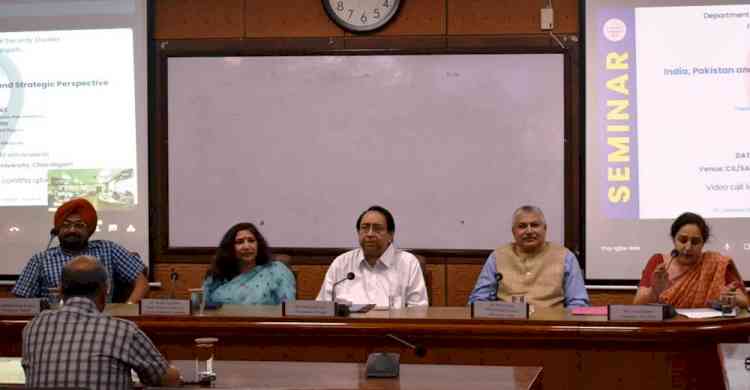
Chandigarh, June 10, 2022: The Department of Defence and National Security Studies, Panjab University, Chandigarh organised a seminar on the theme “India, Pakistan and Gulf: Diplomatic and Strategic Perspective” today at the CIL/SAIF Seminar Hall, Panjab University, Chandigarh.
Dr. Jaskaran Singh Waraich, Chairperson of the Defence and National Security Studies Department, welcomed the distinguished speakers and audience. Dr. Simrit Kahlon, Coordinator, PU-ISSER, chaired the proceedings of the seminar.
In the first beginning of the seminar, Sh. R. K. Kaushik, IAS enlightened the audience on the topic “Pakistan and its Establishment: Impact on India-Pakistan Relations”. He explained that the Army establishment is controlling Pakistan. He sketched out the journey of how the Pakistani Army achieved supreme power in the country. In the first four years after independence, the Pakistani army played its designated role given by its political leaders. From the year 1951 onwards, the Pakistani army started encroaching in the political affairs of the country. Later on, General Ayub Khan and General Yahya Khan captured power one after other and remained supreme leaders from 1958 to 1971. He pointed out that Pakistani PM Zulfikar Ali Bhutto, who came to power in 1971 was the only political leader after Muhammad Ali Jinnah that made the Pakistan army play second fiddle to civilian leadership. He further emphasised that economic, foreign defence and nuclear affairs have been exclusively controlled by the establishment in collusion with the bureaucracy and the judiciary of the country. He concluded that the establishment will continue to dominate the political scene of the country in the foreseeable future, because of which India-Pakistan relations will remain fraught with tensions.
The second Panellist Dr. Rajiv Nayan, Senior Research Associate, IDSA spoke on the topic “Pakistan’s Strategy on Nuclear Weapons”. At the start of the lecture, he suggested students not to blindly believe in political leaders' statements. Instead, they should read between the lines and make their own deductions. He introduced the audience to the structure of Strategic Plans Division Force of Pakistan, which controls its tactical and strategic nuclear weapons stockpile and other nuclear strategic assets. He emphasised on the power of credible nuclear threat in retaliation on a massive scale as a counter to Pakistani nuclear threat. He touched upon the source of funding for the Pakistani nuclear program from the Gulf countries, especially Saudi Arabia. He also explained the current security state of nuclear weapons in Pakistan vis-a-vis terrorists threats likely to emanate from our neighbour. Finally, he concluded by saying that India should be ready for any nuclear exigencies arising out of its nuclearised neighbour.
Dr. Meena Singh Roy, Senior Fellow and Head of Eurasia and West Asia Centre,TilloToma Foundation spoke on the topic “Security India’s Strategic Interests in the Gulf through Defence Diplomacy: Opportunities and Challenges focussed on the GCC Countries”. She put the light on the emerging security dynamics and India’s evolving interest in the region. She defined defence diplomacy as the use of armed forces in peacetime as a tool of foreign policy of securing national interests. She also urged Indian foreign policy makers to use defence diplomacy to enhance and secure its national interests in the Gulf region. She opined that for India, close cooperation with the GCC is important given the changing matrix of geopolitical and geoeconomic dynamics in the region. Military adventurism, development diplomacy, medical and healthcare diplomacy, increasing public unrest, new Middle Eastern Axis, Abraham accord and new Quad are facets of this change in this region. She also pointed out that an inclusive regional security dialogue is a viable option to tackle the emerging challenges. Talks between Iran and Saudi Arabia are a big positive step in this direction. At the end she concluded by saying that keeping in view India’s long term interests in the region, it is important that defence engagement with this region should form the priority of its policy in this region.
The lecture was attended by the faculty, research scholars and students of the University. Dr. Anuradha Choudhary, from the Department of Defence and National Security Studies delivered a Vote of Thanks in the event.


 City Air News
City Air News 


